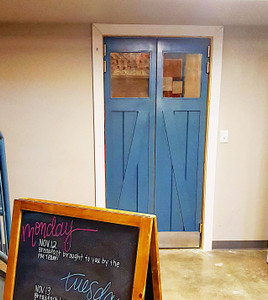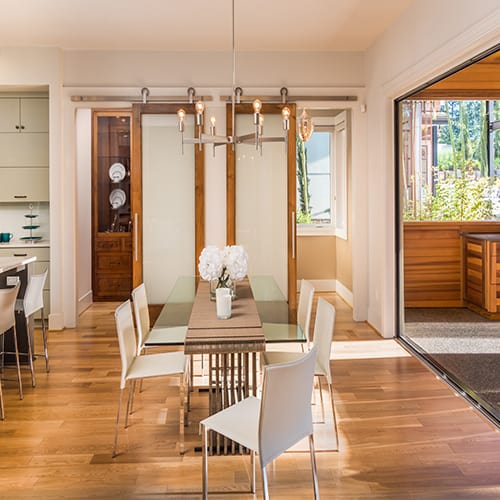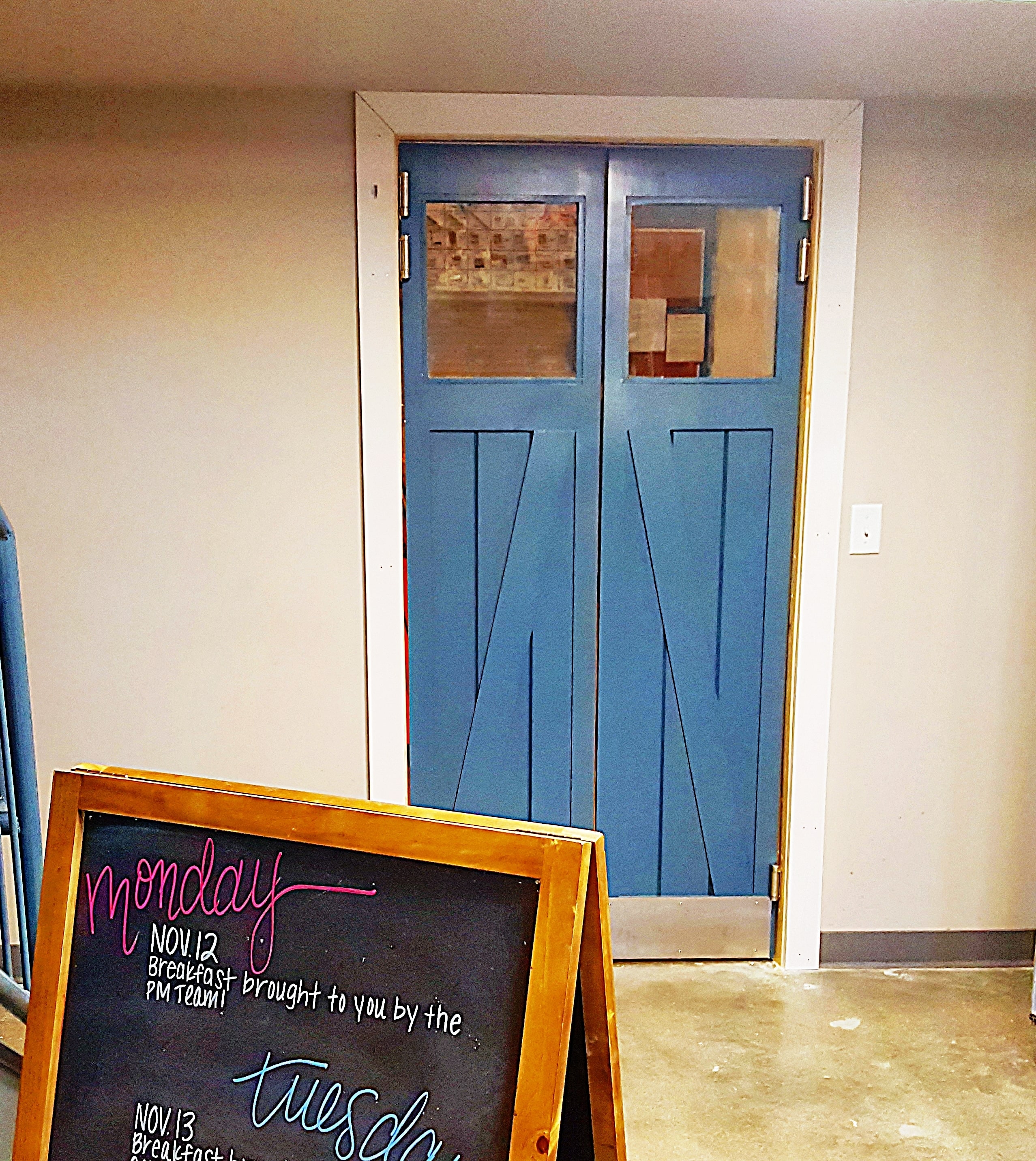
Pros and Cons of Sliding vs. Hinged Doors: A Comprehensive Comparison
Pros and Cons of Sliding vs. Hinged Doors: A Comprehensive Comparison
When it comes to interior design, the seemingly small choices can often make the biggest impact. Take doors, for instance. Their function goes beyond mere entryways; they influence the flow, functionality, and feel of a space. Among the myriad of door styles available, sliding and hinged doors stand out as popular choices, each with its own set of advantages and considerations.
In this comprehensive comparison, we'll deliberate over the sliding versus hinged door conundrum for your living space. From the space-saving properties to the aesthetic appeal, and even the nitty-gritty details of hardware, we'll cover it all. Whether you're a homeowner looking to renovate, an interior design fanatic, or a member of the DIY community eager for insights, read on to discover which type might swing open the door to your ideal home environment.
Sliding Doors: Modern Elegance and Efficiency
The Pros of Sliding Doors
Sliding doors are the epitome of contemporary design, known for their space-saving capabilities as they glide effortlessly on their tracks:
1. Space-Saving Design
In homes where space is at a premium, sliding doors can be saviors. Their operation mechanism lets you do away with the clearances that hinged doors require, freeing up valuable floor space.
2. Modern and Sleek Aesthetics
No one can dispute the stylish appeal of sliding doors. Their large glass panels and clean lines add a touch of modern elegance to any interior.
3. Versatility in Design Configurations
From pocket sliders that aesthetically disappear into walls to vast expanse barn-style doors, sliding doors offer an array of configurations to fit any space's unique layout.
The Cons of Sliding Doors
However, sliding doors aren't without their drawbacks:
1. Limited Insulation and Soundproofing
Most sliding doors are more prone to air leaks and can be less efficient at insulating against noise and weather compared to hinged doors.
2. Potential for Misalignment and Maintenance Issues
With their complex hardware systems, sliding doors may require more maintenance and can suffer from issues like misalignment, leading to difficulty in opening and closing.
3. Restricted Access to Full Door Opening
Despite the space-saving feature, sliding doors can hamper full access to an opening, which might be inconvenient in some scenarios.
Hinged Doors: The Timeless Choice of Traditionalists
The Pros of Hinged Doors
Hinged doors, often referred to as swing doors, have stood the test of time for several reasons:
1. Classic and Timeless Design
Hinged doors are the epitome of traditional design and have been fixtures in architectural design for centuries.
2. Full Access to Door Opening
With their simple in-and-out operation, hinged doors offer unencumbered passage through the full door opening.
3. Enhanced Insulation and Soundproofing
Their design and solid construction often provide better insulation, making them a preferable choice for areas that require sound and weather barriers.
The Cons of Hinged Doors
However, hinged doors also come with their share of downsides:
1. Require Clearance Space for Swinging
The biggest drawback of hinged doors is the floor space needed for them to swing open—clearance which might not always be available in compact homes or rooms.
2. May Clutter Limited Spaces
The swing arc of hinged doors can limit furniture placement and create a cluttered feel in tight spaces.
3. Limited Versatility in Design Configurations
While hinged doors offer more homogeneity in design, they do not provide as much flexibility as sliding doors in terms of creative space usage.
Comparing Slide to Swing in Your Design Scheme
Sliding Doors
Sliding doors are more than just a functional component. They stand for a particular aesthetic and design ethos:
Sleek and Modern Aesthetics
They are ideal for contemporary and minimalist interiors, where clean lines and uncluttered spaces are paramount. They are also often used as space dividers in open-plan living areas to maintain a sense of flow.
Ideal for Contemporary and Minimalist Interiors
In addition to their aesthetic appeal, sliding doors are practical solutions for small spaces. They can make a room feel larger by eliminating the need for clearance that swing doors demand.
Hinged Doors
Hinged doors, on the other hand, have a charm that is both comforting and versatile:
Classic and Traditional Design
They blend seamlessly with a wider range of interior styles, from the most traditional to transitional, and are particularly well-suited to spaces where a warm, classic feel is desired.
Suitable for Various Interior Styles
Their uncomplicated operation and design make hinged doors a clear choice for functionality and accessibility, making them an excellent option for bedrooms and bathrooms in particular.
Design Considerations for Sliding Doors
Before you decide on sliding doors, it's crucial to take these points into account:
Space Requirements and Clearance
Do you have enough wall space to accommodate sliding doors without compromising on the overall layout of your room?
Material and Finish Options
From sleek aluminum frames to warmer wood finishes, the material and finish choices for sliding doors can significantly affect the overall look and feel of your interiors.
Hardware and Track Systems
The quality of the hardware and track systems is paramount for the smooth operation and longevity of sliding doors. Investing in high-quality systems can avoid future headaches.
Design Considerations for Hinged Doors
Hinged doors require a slightly different set of considerations:
Swing Direction and Space Clearance
Could the door interfere with other elements in the room? It's important to choose the swing direction that provides the most convenience and functional layout.
Material and Finish Options
Similar to sliding doors, material and finish options play a significant role in the aesthetic appeal of hinged doors. The right choice can enhance the overall design of your space.
Hinge Types and Configuration Choices
Standard hinges or pivot hinges? This decision typically depends on the visual impact and functional layout you aim to achieve with your hinged doors.
Factors to Consider When Choosing Between Sliding and Hinged Doors
The choice between sliding and hinged doors doesn't have to be a binary one. Several factors should guide your decision-making process:
Space Constraints and Room Layout
The size and layout of your space will dictate which type of door is more suitable. Sliding doors work best in tight spaces, while hinged doors need room to open.
Interior Design Style and Aesthetics
Matching your chosen door style to the interior design and overall aesthetic you're aiming for is crucial for a cohesive look.
Functionality and Usage Patterns
Consider how often the door will be used and for what purpose. Bedrooms and bathrooms typically benefit from the unimpeded access of hinged doors, while closets and smaller rooms might utilize sliding doors more effectively.
Conclusion: Making the Right Decision Based on Your Needs and Preferences
Ultimately, the best door for your space is the one that meets your specific needs and aligns with your personal taste. Each type of door brings something unique to the table, and understanding these nuances will help you make the best choice for your home.
Frequently Asked Questions (FAQs)
To further assist you in your door dilemma, here are some common questions and answers for even more insight:
Which Door Style Offers Better Insulation: Sliding or Hinged Doors?
Hinged doors typically provide better insulation due to their solid core and airtight fit. However, with advancements in sliding door technology, you can still find energy-efficient options that offer good insulation.
Are Sliding Doors More Expensive to Install than Hinged Doors?
The cost of installation can vary depending on factors such as the quality of the door, the complexity of the installation, and the need for additional construction. Generally, sliding doors might be more expensive due to the intricacies of the track system and installation.
Can Sliding Doors Be Used in All Types of Rooms?
Sliding doors can be used in most rooms, but they are especially beneficial in areas with minimal clearance, such as walk-in closets and small bathrooms. They’re also popular for connecting indoor and outdoor spaces.
Are Hinged Doors Suitable for Small Spaces?
Hinged doors can work in small spaces, but you need to ensure that there is enough clearance for the door to open without obstructing the room's functionality. In very tight spaces, sliding doors might be more practical.
How Do I Determine Which Door Style Is Best for My Space?
Assess your room's size, layout, and the amount of clearance you can afford. Consider the room's function and how often the door will be used. Consult with a knowledgeable contractor or designer for personalized advice.
What Are the Maintenance Requirements for Sliding and Hinged Doors?
Both types of doors require regular maintenance to keep them in good working condition. This can involve cleaning tracks, lubricating moving parts, adjusting hinges, and periodically checking for any signs of wear and tear.
Can Sliding and Hinged Doors Be Customized to Fit Specific Design Preferences?
Yes, both sliding and hinged doors can be customized in terms of materials, finishes, and hardware elements to match your design preferences. Some manufacturers even offer custom sizing for non-standard openings.
Are There Any Safety Considerations When Choosing Between Sliding and Hinged Doors?
Hinged doors are often considered safer in homes with children as they do not pose a pinching hazard. Sliding doors, especially glass ones, should be fitted with the appropriate safety features to avoid any accidents.
How Do I Ensure Proper Installation of Sliding and Hinged Doors?
It's best to hire a professional contractor with experience in installing your chosen door style. Proper installation is crucial for the door's functionality and longevity, and a skilled installer can ensure that it's done correctly.
Are Sliding or Hinged Doors More Energy Efficient?
Hinged doors have the potential to be more energy-efficient due to their enhanced ability to seal. However, advancements in sliding door technology have produced energy-efficient models that can rival hinged doors in performance. It’s important to look for doors that come with energy ratings or certifications to make an informed decision.


